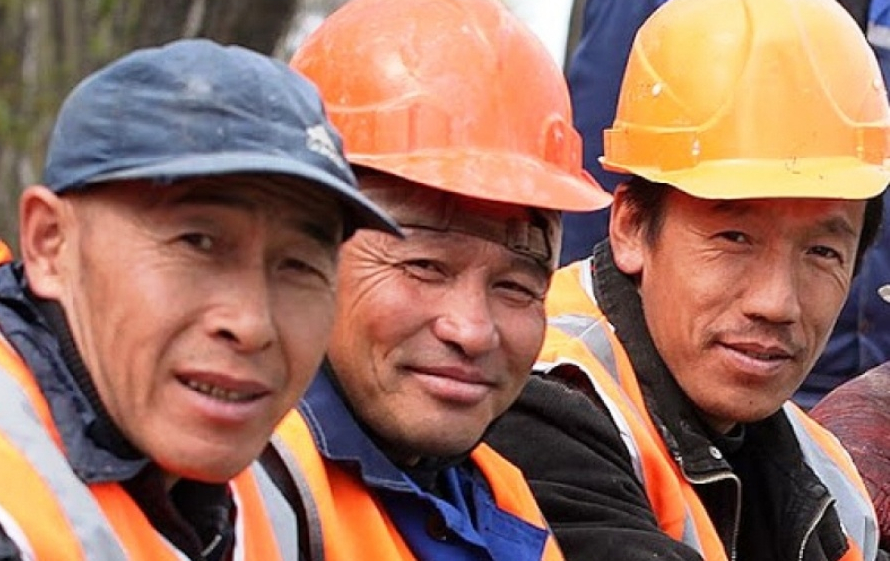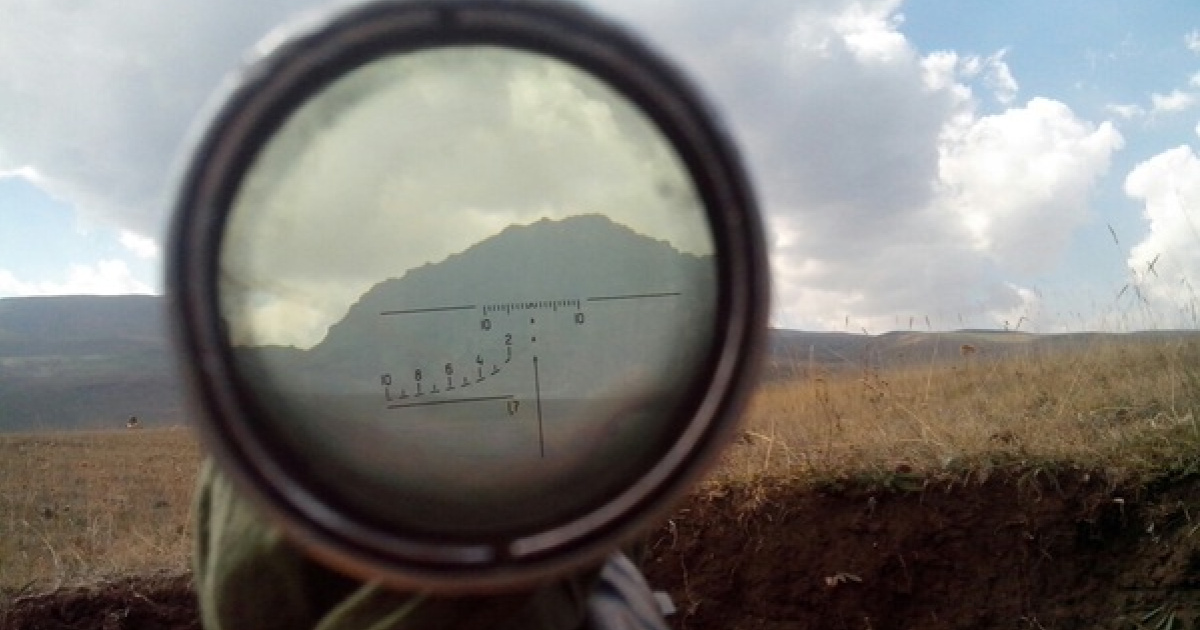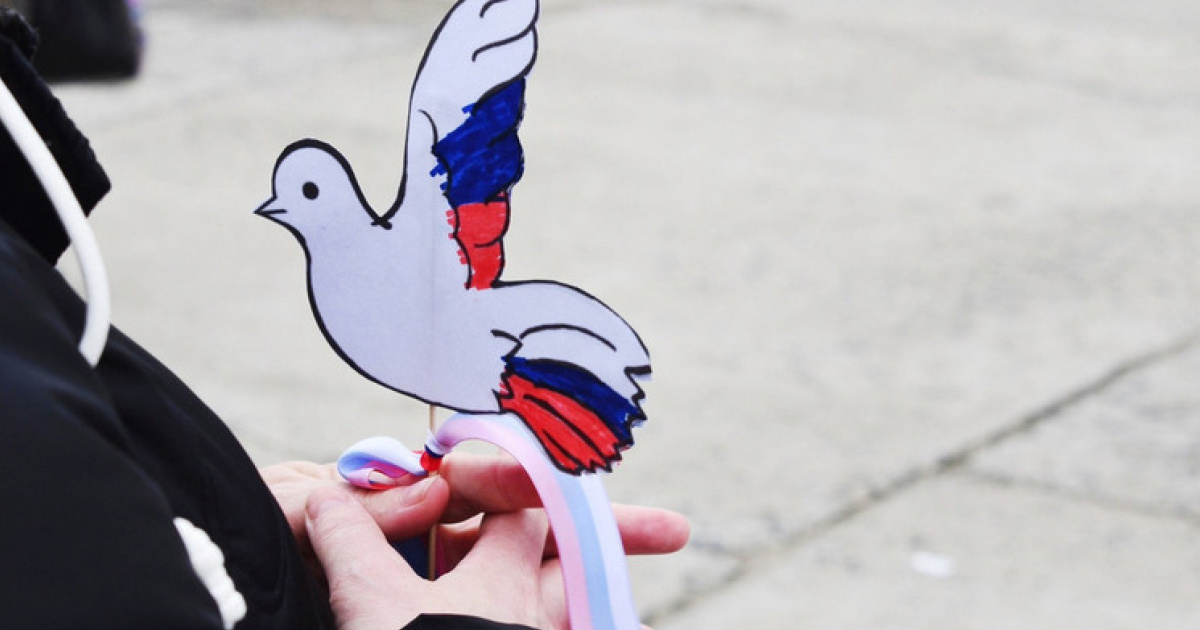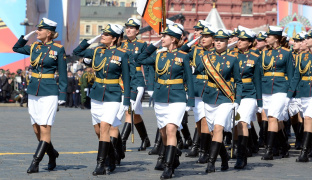Russian business in Ukraine feels in its place despite the harsh anti-Russian rhetoric in public speeches the President Petro Poroshenko and the Prime Minister Arseniy Yatsenyuk.
Moreover, with their agreement the Russians get new advantages despite the accusations against the official Kremlin, that delivers new batch of weapons to militants controlled by DPR-LPR.
One of such reverences to "aggressor" (so-called Russia by Poroshenko and Yatsenyuk) was the August decision of Ukrzaliznytsia to make Russian First Cargo Company (FCC) iron ore carrier for Poltava Mining and Processing Plant (PMPP) and the Dnieper Dzerzhinsky Metallurgical Plant (DDMP).
Earlier PMPP and DDMP served domestic rail operators. In addition, a subsidiary of FCC in Ukraine has received the right to transit to Hungary several tens of thousands of tons of iron ore per month from Belgorod region.
An important fact: UZ is not only 100% owned by the state, it is also managed directly by the Cabinet of Ministry of Ukraine. This means that such decisions are not even in the competence of the Minister of Infrastructure Andrey Pivovarsky. They can only be made with the consent of the Prime Minister.
A. Yatsenyuk talked about Russian aggression against Ukraine not so long ago in his last traditional TV address on Sunday of September 27. According to him, the Russian military aggression against Ukraine was a response to its European choice. More than a year ago on March 13, 2014 the Prime Minister of Ukraine called the Russian aggressor to the whole world on the highest podium, speaking at a meeting of the UN Security Council.
It is obvious that either the actions of UZ are treason with all the corresponding consequences or in fact Russia is not the aggressor. Following the logical development the third option is not given. Indeed, it’s hard to imagine that in 1941-1945 the People's Commissariat of Communications of the USSR gave a part of the railway transportation from the Urals to Podmoskovye to their fellows from the Deutsche Reichsbahn.
UZ might argue that it was before September 2 when National Security and Defense Council of Ukraine introduced sanctions against Russia. And on September 29 UZ announced it would not accept shipments in carriages of FCC and its subsidiary FCC Ukraine and would not load these carriages. But now, first of all, we must remember that the Ukrainian-Russian conflict has been lasting for 1.5 years. And the Verkhovna Rada adopted on August 14, 2014 the Law №1644-UІІ "On sanctions" which provides special economic and other restrictive measures against individuals and entities of the Russian Federation. Therefore, comparison with Deutsche Reichsbahn that carried Soviet tanks from the Ural factories to the frontline is appropriate as it emphasizes the absurdity actions of the current Ukrainian authorities. Or it means their mendacity and duplicity which is even worse.
Secondly, a ban on loading carriages of FCC does not mean anything. Another example is sanctions against airlines from Russia. Once again it should be emphasized that for 1.5 years had been flying to Ukraine as nothing happened. But (apparently under pressure from the West) sanctions were introduced against five Russian airlines. So, what is next? Nothing. Now according to the director of Air Style Evgeniy Haynatskyi, they just redirect the flights to Minsk. There are no sanctions on the flight via Belarus!
In other words there used to be a direct flight Kiev-Moscow, now there will be an additional landing in Minsk and that’s all. It will obviously lead to a rise in price of air tickets. That's the whole effect of the sanctions, higher prices for passengers. Secondly, the ban on flights to Ukraine referred for some reason not to all Russian companies but obviously only to those who had previously opened routes to Simferopol.
And now there appeared information about the plans of the Russian UTAir airline that is not on the "black list", to dramatically increase the number of flights to Ukraine. Again, this situation is some kind of a parody: some aggressor companies face a red light but the others green one.
But if we remember that initially the sanctions should be the economic response to the aggression, then the blatant idiocy of a situation is understandable when Aeroflot and Transaero are simply replaced with UTAir. Therefore, it can’t be excluded that, instead of FCC there will be simply another Russian cargo carrier.
There are other, equally bright examples which are hard to explain.
Thus, the Russian VSMPO-Avisma Corporation, one of the world's largest producers of titanium, continued to receive ilmenite, a raw material for further production of titanium sponge, from Dnepropetrovsk region as if nothing had happened.. This was confirmed by the head of the board of directors of Avisma Mikhail Voevodin in media comments on August 3.
According to him, ilmenite is supplied everywhere, but Ukrainian manufacturers provide the best quality and that’s why, despite the political instability and the associated risks, cooperation with Ukraine will continue. It’s needed to add that the supplier of ilmenite in the Russian Federation is a state enterprise called Volnogorsky Mining and Metallurgical Plant, which is a part of the state United mining and chemical company". Therefore, it is not possible not to think that the reason is this amazing fact of some secret Putin admirers among the Ukrainian oligarchs.
And if cooperation between Ukrainian Energoatom company and the Rosatom corporation may be justified by the issues of the Global Nuclear Security, which didn’t exist during World War II, then the supply of ilmenite or transportation of iron ore cannot be explained.
But no one tries to explain. Why, for example, products of another huge Ukrainian enterprise, Kharkov Electrotyazhmash, are still supplied to Russia?
And is it all together worth the smooth operation of a confectionery factory in Russia's Lipetsk?
But even if the country's leaders act on the principle of "War is war, and trade is on the schedule," and in this case it is impossible to justify the permanent unilateral concessions to the Russians which resemble surrender of national economic interests.
For example, A. Yatsenyuk acknowledged on August 21 at a meeting with grain traders in Kiev region that because of the various non-tariff barriers on the part of Russian supplies of Ukrainian agricultural products were reduced up to 2% of the total export of agricultural products.
The Prime Minister predicted that starting from January 1 of next year export of agricultural products to Russia will be completely blocked by the "elder brother". Then, on September 4 at the session of the Verkhovna Rada he said that it was necessary to prepare for the complete closure of all Ukrainian exports to the Russian Federation.
It’s noteworthy that because of the overlap of sales in the Russian Federation in 2013-2014 Kryukov Wagon Factory (KWF) in Kremenchug and Dneprovagonmash association in Dneprodzerzhinsk almost closed. According to the data of wagon production from January to July at KWF fell down by 5 times, up to 246 units. In Dneprovagonmash reduction of production by 5 times was recorded at the end of 2014.
Meanwhile, now some mysterious forces try to push through the Cabinet the cancellation of restrictive duties on the import of fertilizers from Russia to Ukraine. It is served with the need to fight against the oligarch Dmitriy Firtash who controls through Ostchem Group holding the majority of Ukrainian producers of fertilizers. Among them there are Severodonetsk Azot Association, Rovnoazot, CherkassyAzot and Horlivka Stirol concern which is located on the uncontrolled territory.
The arguments presented data showing that the cost of nitrogen fertilizer intended for export is much lower than that for Ukrainian consumers. D. Firtash abuses the monopoly position on the domestic market. Therefore, it is necessary to take the monopoly away from him, opening the door to imports. Then, if you want it or not Ostchem will have to compete in the struggle for the buyer with foreign producers (i.e. Russians) and destroyed market justice will be met again.
At the same time supporters of cancellation of restrictive duties for some reason can’t explain why a respected state structure as the Antimonopoly Committee of Ukraine exists. AMC has fairly broad powers to bring to life any producers who work with customers on the principle of "there is other alternative for them".
And if in the course of the investigation it is confirmed that Firtash factories really abuse the current situation (and the duties were introduced in due time precisely to protect domestic producers) the AMC can make them to lower prices to market levels. Unless, of course, the perpetrators want to pay fines which amount to hundreds of millions of hryvnia. Then why is instead of investigation by the AMC the cancellation of duties on Russian fertilizers initiated? Isn’t it strange that if it’s not just about trading partner but the aggressor who runs the war against us, as claimed Poroshenko and Yatsenyuk?
Another inexplicable thing in terms of relations with the aggressor who is accused of chopping off a part of our territory, that is to say the Crimea and Donbass, is that the state Sberbank of Russia and VTB Bank continue working in Ukraine. And also Prominvestbank (PIB), the main shareholder of which is the Russian state-owned Vnesheconombank. Again, by analogy with the Second World War, it is as if Deutsche Bank was engaged in giving salaries to the workers of Soviet armored plants.
Meanwhile Poroshenko has repeatedly stressed in public statements that now the Ukrainian people are having a real patriotic war in Donbas.
However, again, the authorities may object and say that within sanctions the National Securities and Stock Market Commission has deprived the Russian banks of license to trade securities in Ukraine.
In this case, let’s refer to the financial statements of Rosbank in Ukraine. And we will see that the same PIB and Sberbank of Russia in the period from January to June had no revenues from operations with securities. And at the end of 2014 the PIB had a loss of 3.28 million UAH on securities transactions. In comparison, its interest income for 2014 amounted to 1.611 billion UAH.
Sberbank of Russia was more successful in the stock market. During 2014 it received income of 81.53 million UAH from securities transactions. Its interest income amounted to 3.5 billion UAH. So, income from securities transactions was 2.3% of the bank's transaction income. Therefore, withdrawal of the license for this activity is a very weak attempt as this is not the main source of income.
But the media was quick to report aggressor was punished! A similar opinion is shared, by the way, by the rated Standard & Poor's agency. According to the estimates of its analysts, sanctions imposed by the Ukrainian authorities against several Russian banks will not have a significant effect on them.
The story with the return to the state 68% of the Zaporozhye aluminum plant, which was previously triumphantly reported to the Prosecutor General of Ukraine, looks not less funny.
Of course, it would be possible to share joy with the officials of the GPU if there were not a nuance, in fact ZALP has not been working for several years, its equipment is cut and removed by enterprising businessmen for scrap. There are only ruins left resembling destroyed buildings in Donbass. But it wasn’t always in such a state. Starting from 2009 it was gradually cutting the production. At first alumina plant was stopped, then aluminum smelting, and finally they stopped ingots casting which were imported from the Russian Federation.
The first published news that the owner of the Russian Aluminium holding company Oleg Deripaska cut equipment of the alumina plant and exports it to the Mykolayiv Alumina Plant appeared in the media in 2012.
And three years passed before SSU suddenly realized that and on July 21 reported about a criminal case on the fact of cutting equipment. Following the SSU the tax police got involed in the case, it also reported that a criminal case against the former head of the now former ZALP. According to the report, the copper equipment of the electrolysis shop was found in Dnipropetrovsk where it was brought for meltback.
In a nutshell, the so-called law enforcement agencies showed their sluggishness. And now, through the efforts of the GPU the government is left with the ruins instead of the industrial giant.
But the cynicism of the situation is that the former Russian owner is no longer responsible. If these ruins are yours, in other words belong to Ukraine, and then you should restore them. Or you shouldn’t. Basically, do whatever you want; we have nothing to do with this object.
Meanwhile, the GPU and the State Property Fund of Ukraine could take another way. In particular, they could demand from Rusal fulfilments of their investment commitments made during the privatization of ZAP at the beginning of 2000. This means jobs and production processes, investments in new production and the environment; everything is stated there including the launch of a new foil rolling plant.
And for non-fulfillment of these obligations other more valuable assets should be returned to state ownership, in particular Nikolayev Alumina Plant (NAP).
The point is that since 2010 Rusal has been trying to deal with the fall of aluminum prices in the world by reducing supply. The holding closes smelters in the third countries. So, smelters were closed in Guinea, Jamaica, Montenegro and Italy. Then there was turn of the Russian assets which have stopped production at five factories of Rusal.
This proves once again that instead of protecting state interests the GPU just helped O. Deripaska get rid of the liabilities of the assess, which in the new market environment would become a ballast.
By the way, this is not the only example of a strange loyalty to the business of one Russian oligarch of who is very close to Vladimir Putin. No less amazing story happened in the summer of 2014 with the extension of the lease term of the Dnieper-Bug port which is crucial for NAP and Siberian Rusal plants
The lease is not only extended for 15 years though the Ministry of Infrastructure insisted on a term of 3 years but the use of a port with an annual turnover of 4 million tons will cost almost nothing, 1 million UAH per year.
Of course, you can applaud to O. Deripaska as he knows how to solve problems with local officials. Moreover, He has got a lot of experience.
For example, in Guinea there was a corruption scandal when local authorities tried to return Friguia alumina plant which was privatized by Rusal in 2006 for $ 19 million. The new authorities tried to prove that Deripaska had bribed the previous leaders, so the price was miserable.
So, if anyone after reading this article suddenly feels insulted for surrender of national interests of Ukraine, don’t worry. We are not the only ones. Guinea is quite a decent company for a country whose leaders are trying to declare European aspirations.
Then you shouldn’t raise the question why the Council of National Security and Defense on September 2 approved a new military doctrine of Ukraine, where the Russian Federation is directly called the principal military adversary and enemy. But at the same time a friendship treaty of 1997 is still valid and states that Ukraine and Russia’s relationship are based on friendship and strategic partnership.
P. Poroshenko talked about Russia's military aggression against Ukraine on September 2 again in the interview with British Sky News television channel.
Then he again reiterates these points on September 30 at the UN General Assembly.
Please tell him that he looks like a clown but he is still the President.
Vitaly Krymov, especially for OstroV




